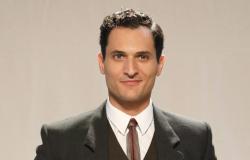Rome, 25 April 2024 – April 25th fifty years ago the dictatorship, the last in Europe, fell in Portugal. Marco Ferrari had dedicated a book to that sensational event, later transformed into a film, entitled The Revolution on the Two Horses. It is the story of how, in those days, two boys reached Lisbon aboard a Citroen Due Cavalli. Now a new edition is coming out from Laterza, completed with a sequel Return to Lisbon 50 years later.
What happens in this sequel?
“The two protagonists, now in their seventies and bruised, find the wreckage of the Due Cavalli in Lisbon and decide to refurbish it to go and discover another revolution, somewhere else. In the book there is an afterword, Diario of a night in April ’74 in which I reconstruct the musical setlist that was the backdrop to the night of the revolution. It is surprising that the first song broadcast on the radio immediately before the rioters’ proclamation was Baile dos Passarinhos, the Portuguese version of The Ball. of Quaqua, perhaps an oversight or perhaps a way to mock the dictatorship”.
The Portuguese revolution was unique: it was in fact led by the military, contrary to what has always happened in any regime.
“The soldiers were young people who stuck carnations in the barrels of their rifles as a sign of peace, which is why it was called the carnation revolution. The bulk of the army was made up of boys who no longer wanted to die in the African humidity to defend what was the largest empire still in existence. The regime destroyed itself. While France and England had now made great concessions to their colonies, Antonio Salazar tried to maintain a collapsing empire. At least 40 thousand Portuguese boys fled abroad to avoid the arrest of 4 years. The officer corps was made up of young graduates who rejected the war: the revolution was born there.”
Antonio Salazar was a very particular dictator…
“He was a shadow that did not exist. Under his dictatorship, which lasted more than 47 years, 22,800 people were killed, yet there is not a single document about it that bears his signature. He was a man from the countryside, a former seminarian : in his residence in Sao Bento he kept 200 chickens and a gigantic vegetable garden.”
His end was mocking…
“He fell from the callista’s chair and hit his head. He began to have brain problems, and the ministers replaced him with Marcelo Caetano. But after a few months Salazar recovered, and no one had the courage to tell him that he had been dismissed. The comedy of false meetings of ministers, of meetings with foreign delegations, of meetings. The director of the Diario de Noticias, his friend, had only one copy of the newspaper printed every night in which the articles concerning Marcelo Caetano were removed and replaced them with the news of it. that Salazar had done. The farce went on for two years.”
She, like the protagonist of the book, went to Lisbon in the days of the revolution. What city did you find when you arrived?
“The exiles returned en masse from the rest of Europe and were astonished by the sense of freedom that pervaded Portugal. The political prisoners, freed, had booklets printed which they gave away or sold on the streets to tell the story of their persecution. My friend director Manuel Carvalheiro brought to Lisbon films that had until then been banned, such as Chaplin’s The Great Dictator and Rome, Open City, and screened them in the city’s gardens.”
What remains of that revolution of fifty years ago?
“Ideologically a great memory, even if the political passion is no longer there. Even in Portugal the right has taken power. Yet the anniversary of the revolution is still celebrated with great emphasis. Portugal had had left-wing governments which brought great signs of social and political innovation, and I believe that this has influenced the founding values of Europe”.





